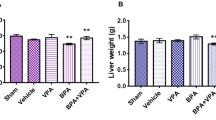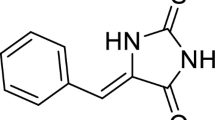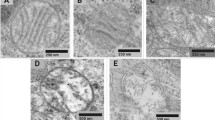Abstract
The chemoprotective effect of vanadium, a dietary micronutrient, against chemically induced hepatocarcinogenesis in rats was investigated. Initiation was performed by a single intraperitoneal injection of diethylnitrosamine (DENA; 200 mg kg-1) followed by promotion with phenobarbital (0.05%) in the diet. Supplementary vanadium (0.5 p.p.m.) in the drinking water was provided ad libitum throughout the experiment, before the initiation or during the promotion period. At the end of the study (20 weeks), vanadium supplementation throughout the experiment reduced the incidence (P < 0.01), total number and multiplicity (P < 0.001) and altered the size distribution of visible persistent nodules (PNs) as compared with DENA control animals. Mean nodular volume (P < 0.05) and nodular volume as a percentage of liver volume (P < 0.01) were also attenuated following long-term vanadium treatment. It also caused a large decrease in the number (P < 0.001) and surface area (P < 0.01) of gamma-glutamyltranspeptidase (GGT)-positive hepatocyte foci and in the labelling index (P < 0.001) of focal cells, coupled with increased (P < 0.01) remodelling. The activity of GGT, measured quantitatively, was found to be significantly less in the PNs (P < 0.001) and non-nodular surrounding parenchyma (P < 0.01) of vanadium-supplemented rats. The anticarcinogenic effect of vanadium was also reflected in the histopathological analysis of liver sections that showed a well-maintained hepatocellular architecture as compared with DENA control. Similar results were observed when vanadium was given only before the initiation. However, supplementation of vanadium during the promotion period did not result in significant alterations of these parameters. Our results, thus, strongly suggest that vanadium may have a unique anti-tumour potential which is primarily exerted on the initiation phase and only secondarily on the promotion stage.
This is a preview of subscription content, access via your institution
Access options
Subscribe to this journal
Receive 24 print issues and online access
$259.00 per year
only $10.79 per issue
Buy this article
- Purchase on Springer Link
- Instant access to full article PDF
Prices may be subject to local taxes which are calculated during checkout
Similar content being viewed by others
Author information
Authors and Affiliations
Rights and permissions
About this article
Cite this article
Bishayee, A., Chatterjee, M. Inhibitory effect of vanadium on rat liver carcinogenesis initiated with diethylnitrosamine and promoted by phenobarbital. Br J Cancer 71, 1214–1220 (1995). https://doi.org/10.1038/bjc.1995.236
Issue Date:
DOI: https://doi.org/10.1038/bjc.1995.236
This article is cited by
-
Polymeric Prodrugs Containing Metal-Based Anticancer Drugs
Journal of Inorganic and Organometallic Polymers and Materials (2015)
-
Chemopreventive doses of resveratrol do not produce cardiotoxicity in a rodent model of hepatocellular carcinoma
Investigational New Drugs (2011)
-
Transcriptional and posttranscriptional regulation of CYP1A1 by vanadium in human hepatoma HepG2 cells
Cell Biology and Toxicology (2010)
-
Synthesis, crystal structures and anticancer activities of two decavanadate compounds
Transition Metal Chemistry (2010)
-
Chemopreventive potential of Epoxy clerodane diterpene from Tinospora cordifolia against diethylnitrosamine-induced hepatocellular carcinoma
Investigational New Drugs (2009)



